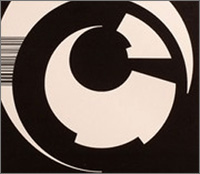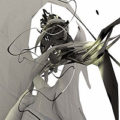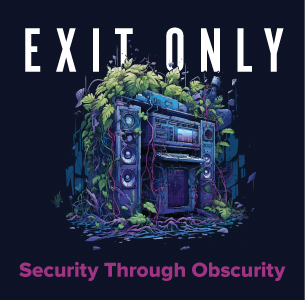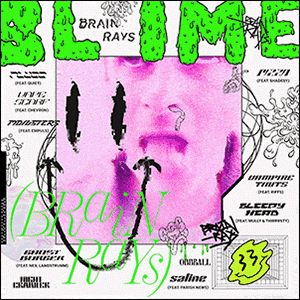
(11.19.07) ELECTRONIC musicians are infamous for burying their projects in a deep burrow of conjecture and mystery, and there are few more enigmatic guises than Gescom. Much like the recent The Tuss records on Richard D. James’ Rephlex Records, there is an abundance of conspiracy theories that deliberate the pseudonyms veracity. However, whereas The Tuss’ work is accredited to a (probably fabricated) Brian and Karen Tregaskin, but is widely suspected to be the creation of Richard D. James himself, Gescom’s roster, which varies from release to release and track to track, has been partially disclosed. Yet it is believed the majority of the contributions remain unaccredited, leaving the door wide open for followers of the project to speculate to their heart’s desire. If the past is anything to go by, that is exactly what electronic music fanboys do best. Rumors pondering whether Gescom is an abbreviation are also rife, with Gestalt Communications being the most frequent suggestion. Additional incongruous allusions include Global Enterprise Communication Systems, and Global Engineering Systems Components.
The Gescom moniker is often mistakenly recognized as merely being Autechre’s more dance-friendly and approachable side-project. This perception is as misguided in terms of the actuality of who is involved as it is absurd in terms of the often non-dance-friendliness and experimental nature of the music. However, there have been releases under the alias which were accredited as being produced solely by Autechre . The duo, which consists of Rob Brown and Sean Booth, are documented as being among most exceptional and important innovators in the field of electronic music. The Autechre FAQ, a Q&A which attempted to settle the whirlwind of conjecture surrounding the pair, says: “Sean Booth calls it an ‘umbrella-project’. The whole Gescom crew consists of almost 20 people.” Despite this, the only other confirmed contributors are Andy Maddocks (Sonic Beat Alliance and one half of Meam), Darrel Fitton (most prominently known as Bola and to a lesser scale Jello), Mike Williamson (Made), Rob Hall (Ad Vanz) and Russell Haswell.
The release of Gescom’s new mini-album, A1-D1 (the first new material in four years), has in some cases been met by electronic music fanatics with more interest about who was involved with the production than the music itself, which incidentally sounds so convoluted for the most part as to mirror the confusion surrounding its creators. While scouring through discussion about A1-D1 on the popular electronic music forum Xltronic, notable comments included: “I’m a little surprised there has been so little reaction to the music itself” and “I couldn’t see Sean and Rob putting their name to this, it sounds like shit. Let’s hope some other anonymous loser did the other tracks.”
Gescom has released material on Skam, Warp Records, Clear, OR, FatCat Records and Source Records and has been active since 1994, the year which saw the release of the Gescom EP and Motor. The former was accredited to Rob Booth, Sean Brown, Darrel Fitton and Rob Hall, as well as an unidentifiable entity called Daniel 72. The latter remains unaccounted for. In 1995 and 1996 four more 12″s were issued. These were C & D (Andy Maddocks and Autechre ), The Sounds of Machines Our Parents Used (unknown), Key Nell (unknown) and Key Nell Remixes (remixes byAutechre). 1998 saw the release of Minidisc (supposedly the first ever Minidisc-only release) which was unaccounted for, but suspiciously released on Russell Haswell’s OR label. Also released in this year were the This and That 12″s, which are unaccredited but again feature remixes accredited to Autechre among others. There was then to be a five year hiatus until 2003’s ISS:SA was released, again unaccounted for, as is the latest release A1-D1, which surfaced on 22nd October this year.
Gescom has also produced remixes for Marco Passarani, Push Button Objects, Man Parrish and Hecker (an electro-acoustic musician who is closely related to Russell Haswell).
So, the question that predominantly remains is who else is involved with Gescom and which releases are they involved with? A quick e-mail to Skam revealed zilch, with the response from the label’s establisher Andy Maddocks being: “I’m afraid nothing shall pass these lips.” One method of speculating is by comparing conceivable contributors’ music to Gescom’s music. The style of the releases has varied wildly, from the superb formulaic IDM of Key Nell to the heavily experimental bleeps and clicks of Minidisc. Autechre’s influence is blatantly evident in most of the tracks; therefore it is probable the electronic music behemoths provide at least a helping hand in all of the releases. It is feasible that there are contributions from Autechre’s Warp Records label mates such as Plaid within the more formulaic tracks. The intense sounds of ISS:SA and A1-D1 easily suggest that Skam label mates such as the magnificent Team Doyobi participated. And it wouldn’t be a surprise to discover that an electro artist such as Drexciya took part in the creation of The Sounds of Machines Our Parents Used. The guessing game could go on and on. Oh and by the way, any murmur that the mighty Richard D. James is connected with the project has been hastily met with dismissal.
Gescom will continue to exist as a stage for an unknown number of artists to anonymously work in an unknown number of combinations. Is the assurance of anonymity an incentive for participants to take more risks with the music while ensuring the reputation of their main projects remain intact, hence the heavy experimentalism? Perhaps. One almost unanimous detail is that the music has been consistently excellent, and providing that continues, it should not matter who is responsible for its creation.

















